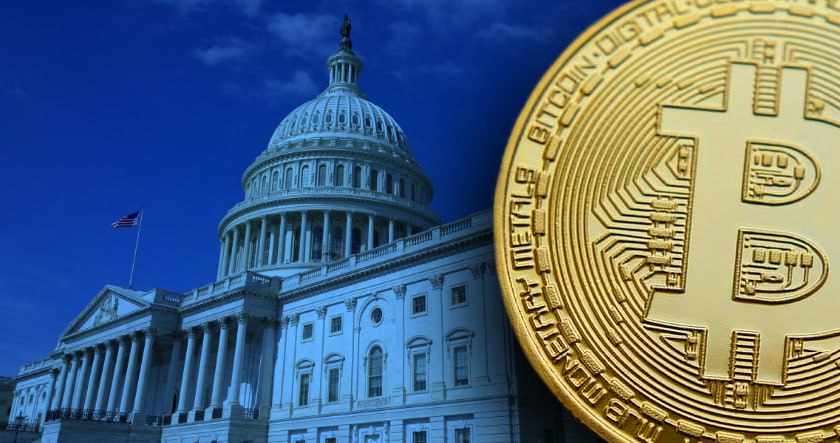Introduction to Cryptocurrencies and Regulatory Challenges
In recent years, cryptocurrencies have gained increasing popularity as a form of digital money. But what exactly are cryptocurrencies? Cryptocurrencies are digital representations of value that use cryptography to secure transactions and control the creation of new units. Unlike traditional currencies issued by central banks, cryptocurrencies are decentralized and based on blockchain technology.
How Cryptocurrencies Work
Cryptocurrencies operate on a distributed network of computers called the blockchain. The blockchain is a public ledger that transparently and immutably records all cryptocurrency transactions. This ledger is shared among all participants in the network, eliminating the need for a third-party intermediary such as a bank or government.
The Impact of Cryptocurrencies on the Global Economy
The emergence of cryptocurrencies has had a significant impact on the global economy. Cryptocurrencies offer benefits such as faster and cheaper cross-border transactions, financial inclusion for the unbanked, and opportunities for investment and innovation. However, their decentralized nature and potential security also raise concerns about money laundering, tax evasion, and financial stability.
Regulatory Challenges of Cryptocurrencies
The unique characteristics of cryptocurrencies pose challenges for regulators and policymakers. Who regulates cryptocurrency face a decentralized and global digital asset that requires balancing fostering innovation and ensuring consumer protection, market integrity, and financial stability. Challenges include:
- Identifying the appropriate regulatory jurisdiction.
- Combating illicit activities.
- Addressing the risks associated with cybersecurity and technological vulnerabilities.
The Importance of Regulatory Supervision for Cryptocurrencies
Regulatory oversight is crucial given the rapid growth and evolving nature of cryptocurrencies. Proper regulation can help protect consumers, mitigate risks, and maintain the integrity of financial markets. It can also provide clarity and confidence for businesses and investors, fostering the development of a mature and sustainable cryptocurrency ecosystem. However, finding the right regulatory approach that balances innovation and risk management remains complex.
We will delve deeper into cryptocurrencies' regulatory framework, explore the key players, and analyze who regulates cryptocurrency. We will also discuss the risks and benefits of regulatory oversight and examine the evolving landscape of cryptocurrency regulation.
Understanding the Regulatory Framework for Cryptocurrencies
The Role of Governments in Cryptocurrency Regulation
Governments play a crucial role in regulating cryptocurrencies. As the digital asset class continues to gain traction, authorities worldwide are grappling with developing comprehensive regulatory frameworks. Governments aim to balance fostering innovation and protecting citizens from potential cryptocurrency risks.
Global Regulatory Bodies and Initiatives
In addition to individual governments, various global regulatory bodies, and initiatives have emerged to address the challenges of regulating cryptocurrencies internationally. Organizations such as the Financial Action Task Force (FATF) and the International Organization of Securities Commissions (IOSCO) have taken steps to establish guidelines and standards for cryptocurrency-related activities, including anti-money laundering (AML) and investor protection measures.
Regional Differences in Cryptocurrency Regulation
Who regulates cryptocurrency varies across different regions and jurisdictions. Some countries have embraced cryptocurrencies and blockchain technology, providing clear legal frameworks that support innovation and promote responsible use. Others have taken a more cautious approach, implementing stricter regulations to mitigate risks and protect consumers. These regional differences in regulation can impact the development and adoption of cryptocurrencies in various markets.
The Need for Consistent and Coordinated Regulation
As the cryptocurrency market is inherently global and borderless, there is a growing recognition of the need for consistent and coordinated regulation. Inconsistencies in regulatory approaches can lead to regulatory arbitrage, where businesses and users seek out jurisdictions with less stringent regulations. Harmonizing regulatory efforts across borders can help address potential loopholes and create a level playing field for market participants.
Promoting Secure and Compliant Crypto Transactions
In this evolving regulatory landscape, At PlasBit, we forefront of promoting secure and compliant cryptocurrency transactions. We provide a trusted platform for individuals to hold and use cryptocurrencies, offering secure crypto debit cards and ensuring confidentiality and privacy. We aim to provide crypto enthusiasts with a seamless and safe experience by adhering to regulatory requirements and implementing robust security measures.
As we continue our exploration of cryptocurrency regulation, we will delve deeper into the roles and responsibilities of those who regulate cryptocurrency and examine the evolving trends and challenges in the regulatory landscape.
Risks and Benefits of Cryptocurrency Regulation

Risks Associated with Unregulated Cryptocurrencies
Unregulated cryptocurrencies pose several risks affecting users and the broader financial system. One of the key risks is the potential for fraud and scams, as unscrupulous actors take advantage of cryptocurrencies' decentralized and pseudonymous nature. Market manipulation and insider trading can only occur with regulatory oversight, undermining market fairness and investor confidence. Moreover, the absence of consumer protection measures leaves users vulnerable to hacking, theft, and loss of funds.
Benefits of Responsible Cryptocurrency Regulation
While the risks are evident, responsible regulation of cryptocurrencies can bring numerous benefits:
Regulation can enhance market integrity by ensuring transparency, fair trading practices, and disclosure standards. It, in turn, promotes investor confidence and attracts institutional investors into the market.
Regulatory frameworks can provide a legal framework for businesses and individuals, fostering innovation and responsible entrepreneurship.
Regulations can address money laundering and terrorist financing concerns, safeguarding the financial system's integrity.
Enhancing Security and Convenience in Crypto Transactions
At PlasBit, as a leading platform in the cryptocurrency space, we recognize the importance of security and convenience in crypto transactions. By leveraging cutting-edge technologies, we offer users a secure and user-friendly environment to hold and utilize cryptocurrencies. With our crypto debit cards, users can seamlessly convert their cryptocurrencies into traditional fiat currencies and purchase at millions of merchants globally.
In this evolving regulatory landscape, individuals and businesses must understand the risks and benefits associated with who regulates cryptocurrency. While responsible regulation can mitigate risks and foster market development, choosing reliable platforms like ours that prioritize security and compliance is equally important. We will explore the role of self-regulatory organizations in who regulates cryptocurrency and their efforts to establish industry standards and best practices.
Self-Regulatory Organizations in the Cryptocurrency Industry
The Need for Self-Regulation in the Cryptocurrency Industry
Given the decentralized and global nature of the cryptocurrency industry, self-regulatory organizations (SROs) have emerged to fill the regulatory gaps and establish standards of conduct. SROs play a crucial role in fostering trust, promoting responsible practices, and protecting the interests of users and investors. They often collaborate with governments and regulatory bodies to develop and enforce industry-specific regulations.
Establishing Industry Standards and Best Practices
SROs in the cryptocurrency industry work towards establishing industry standards and best practices. These standards can cover security measures, customer protection, anti-money laundering (AML) policies, and transparent trading practices. By setting these standards, SROs aim to enhance market integrity, improve investor confidence, and ensure the long-term sustainability of the cryptocurrency ecosystem.
A Commitment to Self-Regulation and User Protection
At PlasBit, we recognize the importance of self-regulation and user protection in the cryptocurrency industry. We are committed to adhering to industry standards and best practices to ensure the security and trustworthiness of our services. By implementing robust security protocols, conducting thorough customer due diligence, and employing advanced anti-fraud measures, we strive to create a safe and reliable environment for our users.
Navigating the Future: Cryptocurrency Regulation and the Path Ahead
The rise of cryptocurrencies has revolutionized the global financial landscape, offering new opportunities and challenges for those who regulate cryptocurrency. We have examined the importance of regulatory oversight in cryptocurrencies and how it influences the adoption and safe use of these new forms of digital money.
Cryptocurrencies, decentralized and blockchain-based, present unique challenges for regulators. However, responsible regulation is essential to ensure consumer protection, prevent illicit activities, and maintain stability in financial markets. Who regulates cryptocurrency is working to develop guidelines and standards to address cryptocurrency-related issues such as money laundering and investor protection.
Additionally, on our journey, we explored the role of our platform in cryptocurrency. We are committed to providing a secure and compliant environment for crypto transactions, offering crypto debit cards, and ensuring user privacy. Our adherence to regulations and implementation of robust security measures contribute to a reliable experience for cryptocurrency enthusiasts.
Furthermore, we highlighted the importance of self-regulatory organizations (SROs) in who regulates cryptocurrency. These organizations work towards establishing codes of conduct and best practices to promote investor confidence and market transparency.
As the regulatory landscape of cryptocurrencies continues to evolve, it is crucial to strike a balance between innovation and risk management. Cooperation between governments, regulators, SROs, and platforms like ours will create a consistent, secure, and supportive regulatory environment for cryptocurrency ecosystem growth.
In conclusion, cryptocurrency regulation is crucial in creating a secure and trustworthy environment for users and investors. Who regulates cryptocurrency: governments, regulators, and self-regulatory organizations need to work together in developing collaborative approaches to navigate the evolving landscape of cryptocurrency regulation.







